Bosch: Will the way the police are portrayed on screen have to change?
Most cop shows feature tortured souls bending and breaking the rules. Has that pop-culture message led to the marked reluctance to bring bad cops to book in real life? James Moore investigates

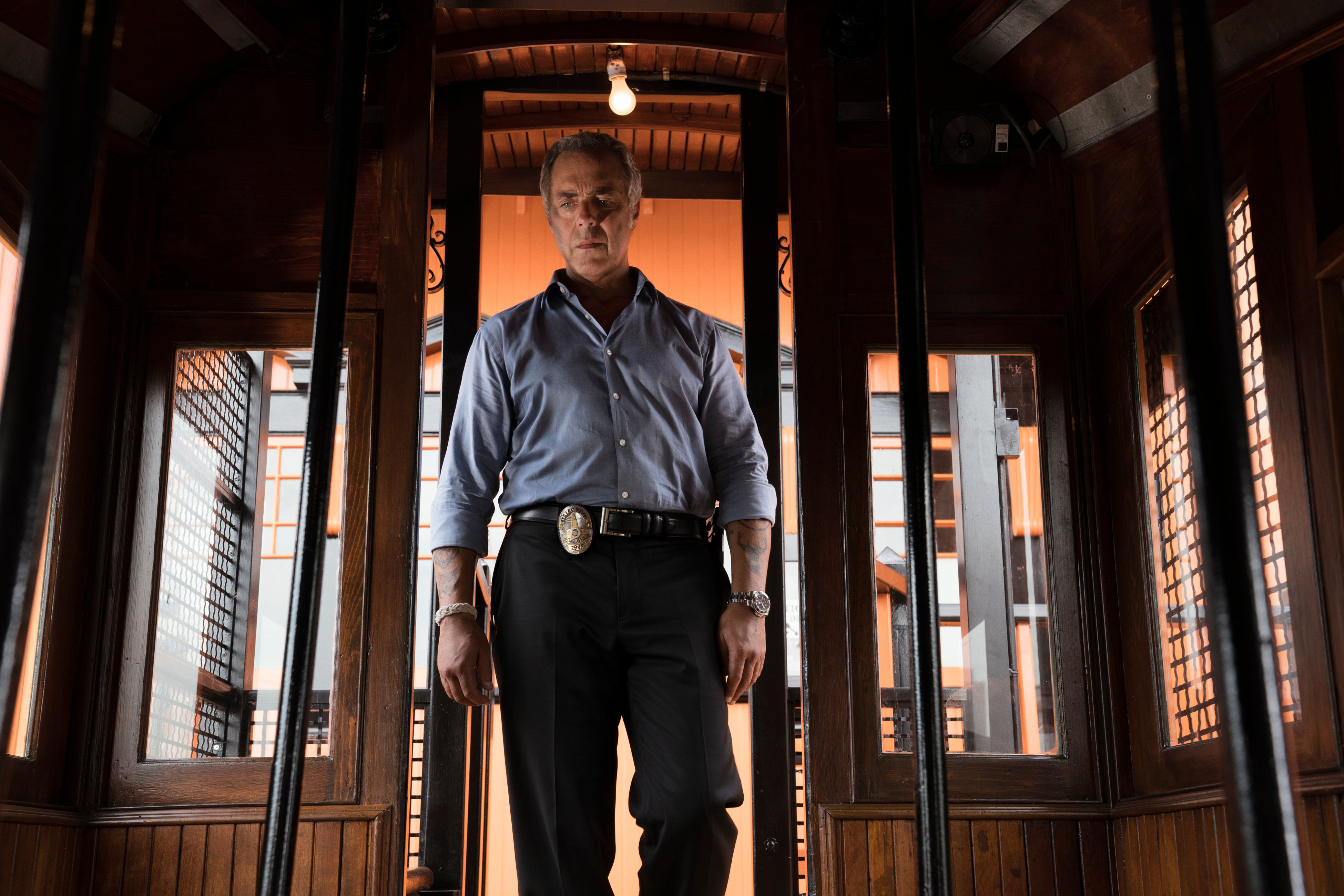
As Bosch embarks on its seventh, and final, Amazon Prime season, its lead actor, Titus Welliver, is perhaps entitled to indulge in one of those looks the character he plays has become famous for. A raise of the eyebrows that says: “See, I told you so.” Seven seasons is pretty good going for what the Rotten Tomatoes consensus for season one described as “an uneven boilerplate police drama”. Paste Magazine, meanwhile, said Bosch was “your dad’s secret favourite show”. Given that it ranked it fifth out of 20 Amazon originals, you wonder why the secret? But it does rather sum up how the show is perceived.
The Marvellous Mrs Maisel has filled a truck with its awards while other critically lauded Prime shows such as The Boys, and The Man in the High Castle have (justifiably) received plenty of looks. Bosch isn’t in the same league on that score, but for a scripted streaming show to live for so long it must have something about it.
Perhaps its appeal lies in the fact that, while it mightn’t be particularly original, Bosch does what it does extraordinarily well. The contributing parts are all good; the writing, the direction, the sandblasted look of the show, the noir-ish feel, the way it makes the sleazy side of LA a key character in a way that few of its peers set in that city have. And of course, there’s Welliver.
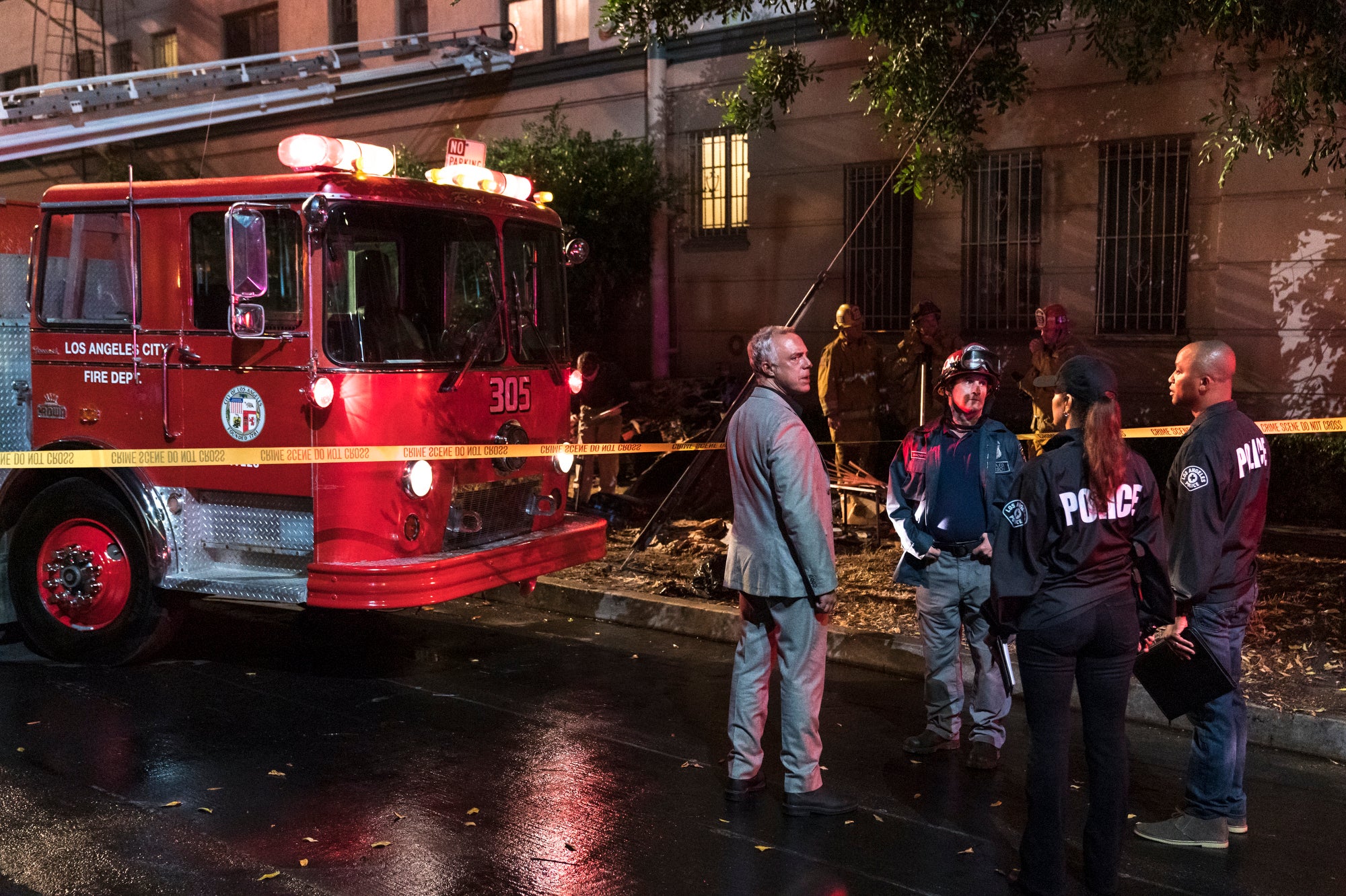
Has there ever been a better casting choice for a literary adaptation? Is it possible, after seeing the show, to read the Michael Connelly books without hearing his gruff tones in your mind’s ear when the great man speaks? Even if the show’s sum isn’t greater than its high quality parts, it at least lives up to them. Bosch is a genre production, but it’s a damn good one and what’s wrong with that?
Except that there’s a cloud hanging over this genre and it extends to cover both Bosch’s lower quality rivals produced to pad out networks’ schedules, and the starrier affairs destined to elbow it aside in the minds of the people who sit on awards panels.
There are plenty who would argue that of course people know the difference between TV shows or movies and real life
The cloud has been there ever since one Derek Michael Chauvin put his knee on to the neck of George Perry Floyd Jr and squeezed the life out of him. Floyd’s murder was followed by a rash of other incidents, all of which combined to shine a harsh and unforgiving light on American policing. The cops on our screens are shop-soiled heroes. They are depicted as tortured souls with messy personal lives, made that way by their mission to bring bad guys to justice. We’ve all quietly cheered as they’ve bent, and even broken, irksome rules that get in the way of taking monsters off the streets.
But now? Now it doesn’t feel so comfortable, especially with the questions that have been raised over police accountability, or the lack of. There are plenty who would argue that people know the difference between TV shows or movies and real life. Maybe so. But maybe it’s complacent to think that pop culture doesn’t have an influence on public perception. There is a reason why TV advertising still rakes in billions of dollars, even in the internet age.
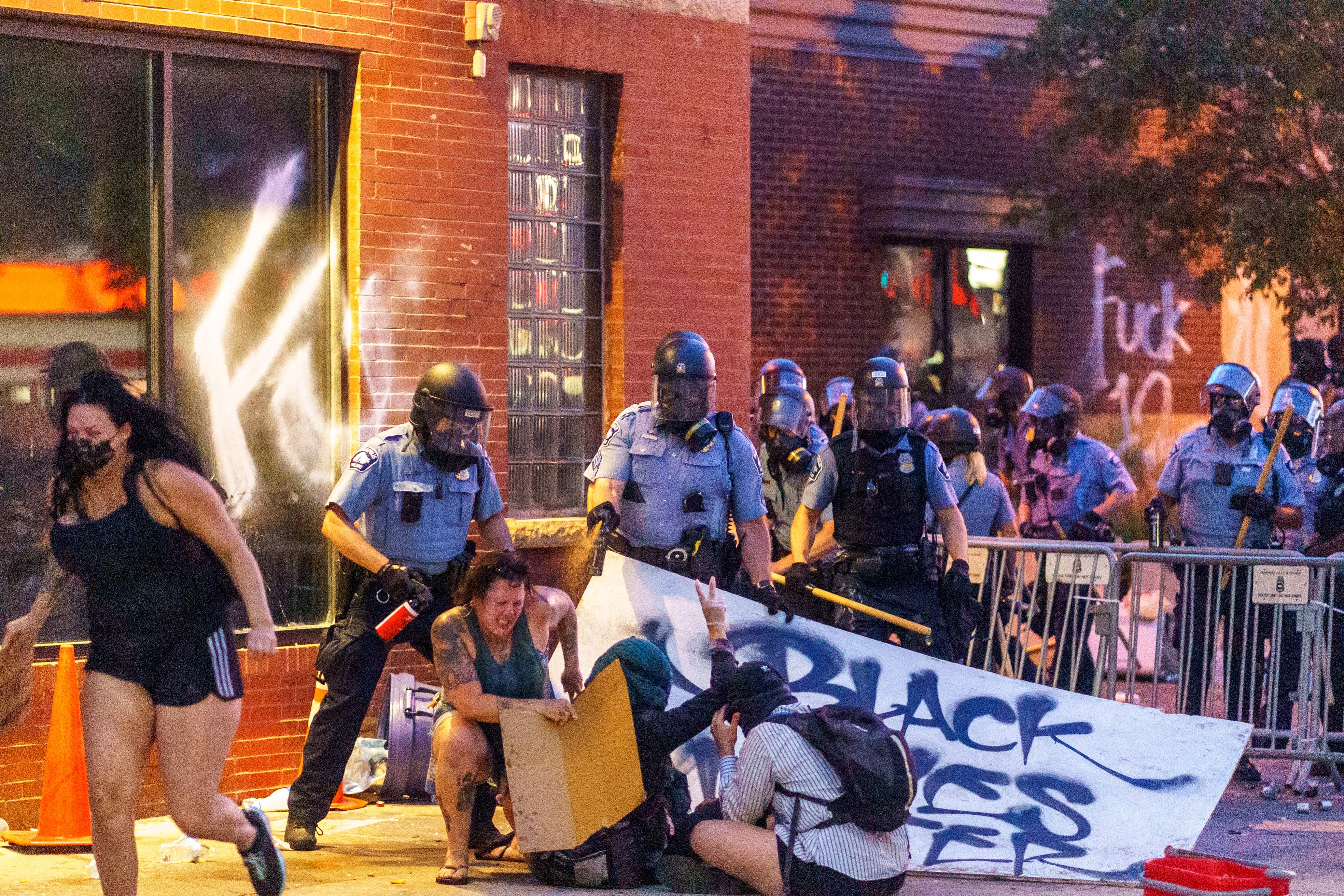
It relies upon pounding simple, understandable messages, into people’s minds. And it works. Just think about how many slogans you know. To be fair to Bosch the show, and to Connelly’s superb series of books, the titular lead character doesn’t always get a pass when he crosses the line in the same way that some of his peers do.
The Harry that’s short for Hieronymus isn’t framed in quite the same way as the Harry prefixed with “Dirty”, who wanted us cheering alongside him when he said “go ahead punk, make my day”.
Take the end of Season 3 (spoiler alert) when we learn that Bosch illegally installed hidden cameras in the home of a murderer he was pursuing, and then sat back and watched as the man was himself murdered by a pair of thugs in the pay of another murderer (it makes perfect sense when you watch it, I promise).
Bosch the character seeks to justify his actions by saying they took four monsters “off the board”. His unhappy partner, Jerry Edgar, given a more sympathetic portrayal on screen by the actor Jamie Hector than he gets in the books, is appalled and wonders if their partnership can continue as a result. During the same season, daughter Maddie (Madison Lintz) also snakily notes that Bosch is a stickler for the rules with everyone but himself.

“It’s always just what he wants. He’s always been a private investigator, even when he carried a badge,” says an unhappy FBI agent, Ray Lindell, with whom Bosch has sometimes tag-teamed towards the end of Lost Light, the ninth of Connolly’s Bosch series.
Police procedural books and cop shows want us to root for the lead character. But while the better ones, and Bosh is that, don’t ask us to do so unequivocally, they still tend to applaud cops who bend, even break, the rules in pursuit of criminals.
Another genre trope, to which Bosch subscribes, is the way the cops who investigate cops are portrayed; the men and women of Internal Affairs. They are sometimes made out to be as bad as, if not worse, than actual criminals.
It’s also standard procedure in cop shows to portray suspects calling for their lawyers as a sure sign of a baddie. “I’ll bet you do,” sneers Bosch to one suspect who calls for theirs. On another occasion a mewling Hollywood director cries for his lawyer when we know he’s guilty as hell.
We also see this in Mare of Easttown, HBO’s captivating piece of television that will deserve the hatful of awards it will probably get nominated for. It features what is, arguably, a career best performance from Kate Winslet. Five, 10 minutes in, you’re not watching her at all. You’re watching Mare.

But, (spoiler alert again), when a suspect cries “lawyer, lawyer, lawyer”, invoking her right to remain silent, Mare presses on with her aggressive questioning until she’s held back by her partner. We viewers know the suspect has done some bad things. She’s on video committing a violent assault on the murder victim in the woods. She lured her there through a nasty case of catfishing (the creation of a fictional potential boyfriend via social media). No wonder she won’t talk.
But is the way pop culture portrays calling for a lawyer as something done only by the guilty fair?
Consider the now famous lecture given by Regent University law professor James Duane, which became a YouTube sensation when it was put up under the header “Don’t Talk to the Police”. It has since been viewed more than 13m times, and subsequently led to a book “You Have the Right to Remain Innocent”.
Cop shows accurately depict police officers getting away with violating not just standard investigative procedure, and the rules of evidence, but the law full stop
Duane speaks in praise of the fifth amendment of the US constitution, which guarantees the right not to be a witness against oneself. “God bless America, God bless the bill of rights and thank God for the fifth amendment. I’m not ashamed to say I’m proud of the fifth amendment and I’m proud to admit on camera and on the internet that I will never talk to any police officer under any circumstances,” says Duane at the outset.
Those who imagine he must be some fiery radical might care to note that Regent was founded by the conservative evangelist Pat Robertson and has been described as “the Harvard of the Religious Right”. Duane is also a contributor to the right-wing Federalist Society.
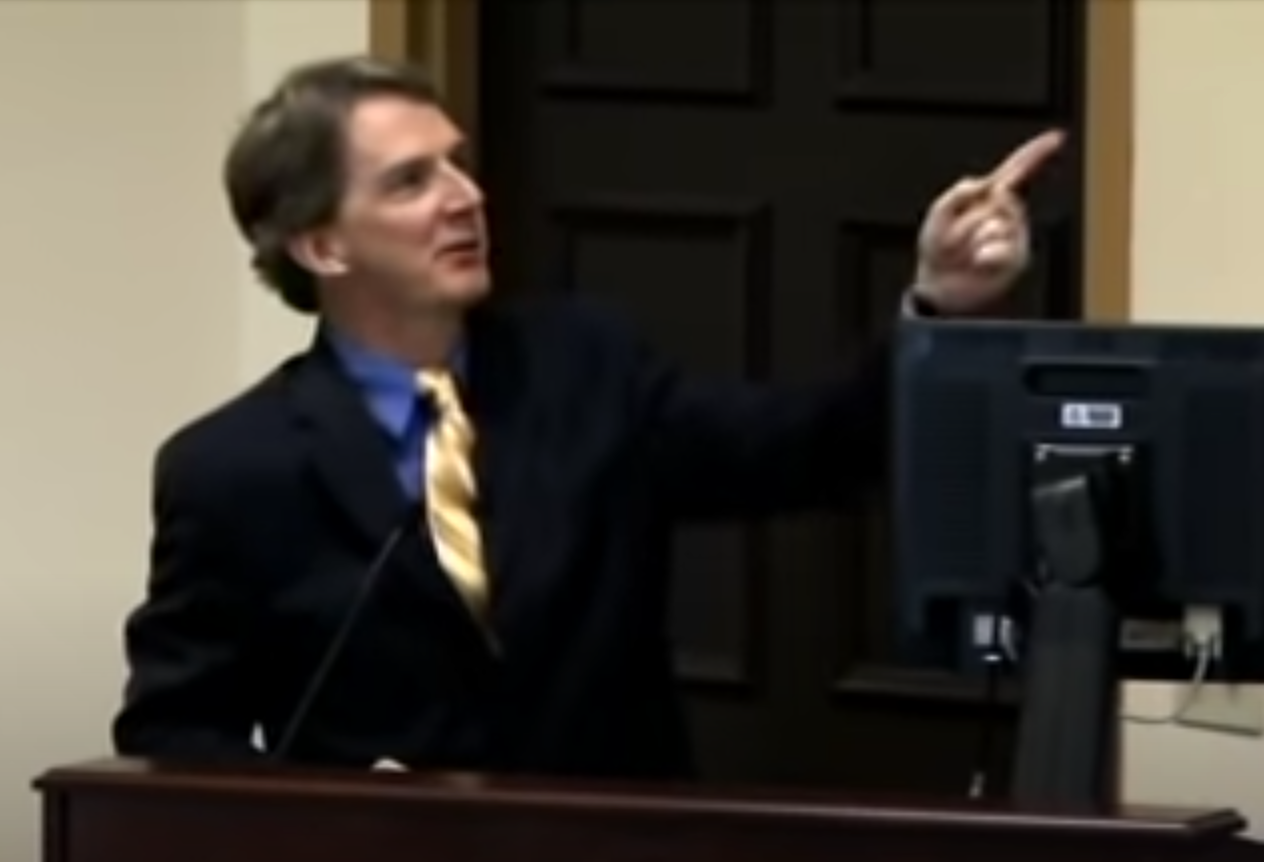
In his highly entertaining lecture, in which he speaks at the speed of a bullet train without ever seeming in danger of losing his thread, he provides examples of where innocent people have spoken to police officers only to get burned through so doing. Needless to say, this includes death penalty cases, which were only reversed on appeal thanks to the work of the Innocence Project. He even gives the last portion of the lecture over to a police officer, studying law, who doesn’t seek to deny his conclusions.
Duane wants us to understand that the right to remain silent is there to protect the innocent, not to shield the guilty, most of whom plead out long before their cases reach trial (a point he makes).
Listening to him, one does start to question the UK’s diminution of the same right. It was qualified in 1994 and now reads: “You do not have to say anything, but it may harm your defence if you do not mention when questioned something which you later rely on in court.”
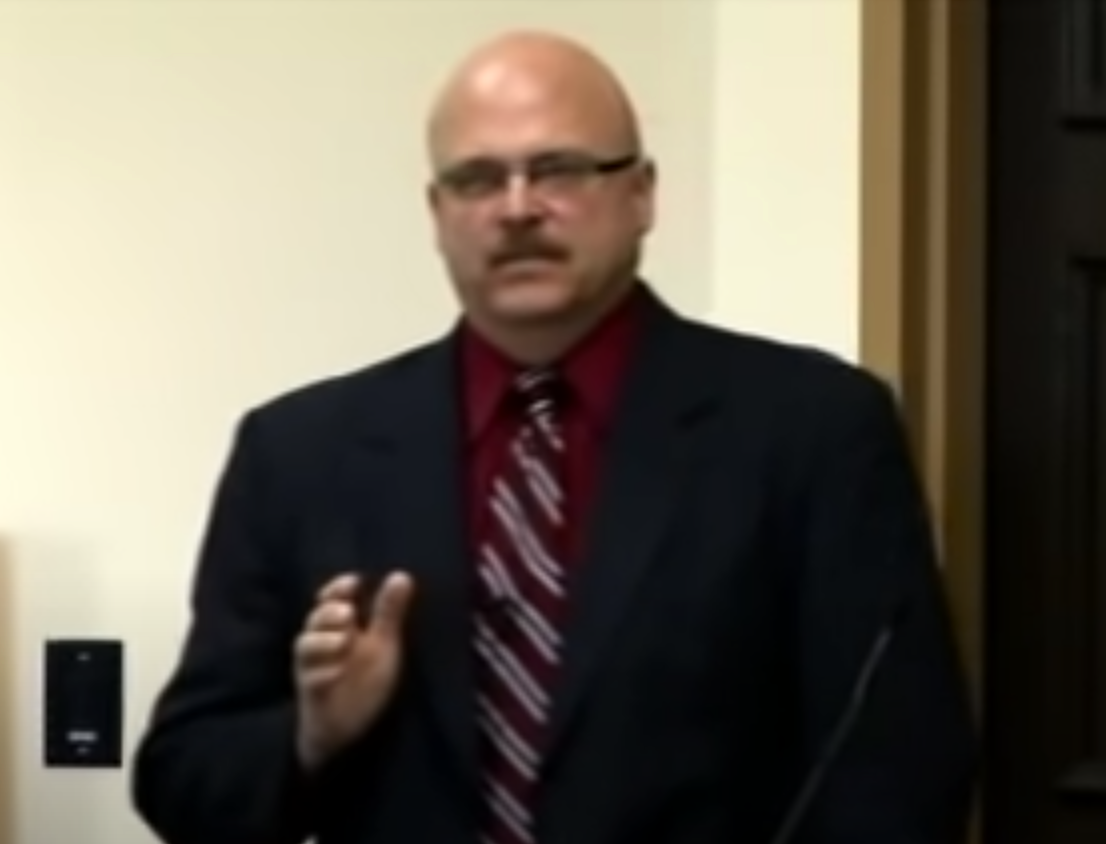
A couple of decades after the reform, the London School of Economics said the move had “decreased the protection which the right to silence can provide against wrongful convictions, and increased the potential for abuse of power”.
One way cop shows are accurate is in their depiction of police officers getting away with violating not just standard investigative procedure, and the rules of evidence, but the law full stop. We are supposed to sympathise with Winslett’s Mare, who’s battling to maintain custody of her grandchild in the face of a challenge from the mother, the former partner of her late son. The latter is a recovering addict with an unhappy history.
Mare steals drugs from the evidence locker at her small town police station, and plants them on the mother. For this she is suspended and warned off continuing to investigate her case(s), which she proceeds to ignore, solving one of them heroically. Naturally she gets invited back when she should arguably have faced criminal charges.
It’s also possible to depict investigators as unconventional and annoying to their superiors – traits beloved by crime writers – while still being sticklers for the rules
This is art imitating life. In 2019, USA Today led a nationwide effort to publish the disciplinary records of police officers in the wake of Floyd’s murder. It found some not so heroic behaviour in which rules, and yes laws, were broken for reasons as far from apprehending murderers as it’s possible to get. Officers were found to have beaten members of the public, to have, like Mare, planted evidence, and to have used their badges to harass women. The report cited incidences of them lying, stealing, dealing drugs, drink driving (which Bosch has been known to do) and abusing their spouses all the while avoiding public scrutiny.
About 5,000 police officers had their credibility as witnesses called into question, putting them on “Brady lists”, created to track officers whose actions must be disclosed to defendants if their testimony is relied upon in prosecutions. In total 85,000 officers had been investigated, and sometimes disciplined, for misconduct over a the course of a decade.
“Despite their role as public servants, the men and women who swear an oath to keep communities safe can generally avoid public scrutiny for their misdeeds,” the newspaper said. “The records of their misconduct are filed away, rarely seen by anyone outside their departments. Police unions and their political allies have worked to put special protections in place ensuring some records are shielded from public view, or even destroyed.”
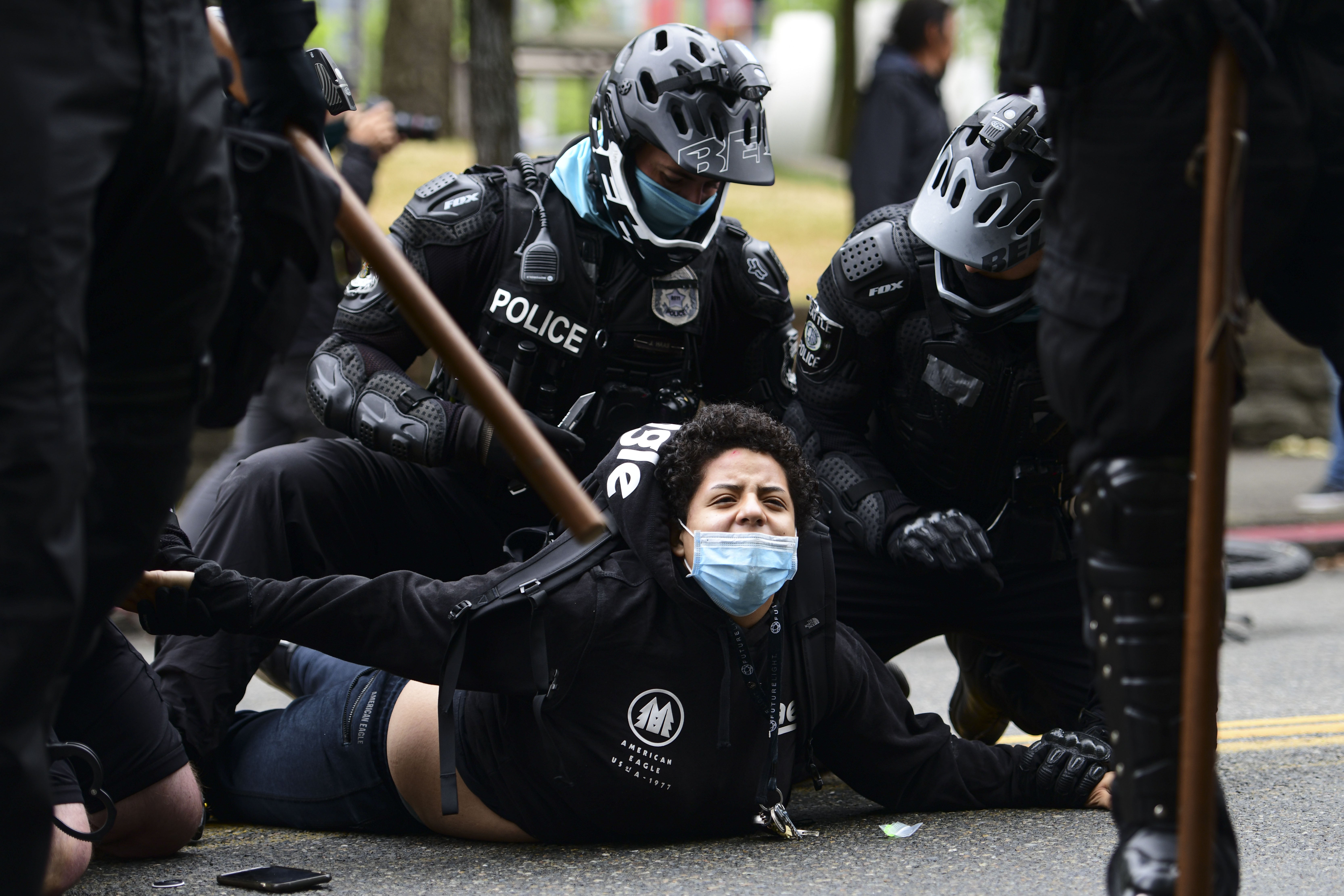
NPR recently detailed the story of a woman named Katheryn Jenks, from a small northern California town, who ended up wounded and in a jail cell facing serious charges on the day governor Jerry Brown signed a law opening up long hidden records of misconduct. This ultimately included files casting a new light on her case and raising disturbing questions about police accountability.
The behaviour of police during the Black Lives Matter protests that followed Floyd’s murder was also sometimes less than exemplary. The report from Seattle by The Independent’s Andy Buncombe, who was arrested, jailed and assaulted by a guard simply for doing his job, made for shocking reading.
The characterisation of Internal Affairs investigators, when they aren’t criminals, as obsessive scalp hunters dedicated to bringing down good cops is clearly called into question by these findings.
The problem of police misconduct, and the lax oversight of it, is far from unique to the US. Figures released by the Independent Office for Police Conduct (IOPC) in this country showed 641 officers in England and Wales may have so seriously breached standards that they were liable to be sacked between 2015 and 2020, but just 54 (8.4 per cent) lost their jobs after disciplinary action was conducted internally.
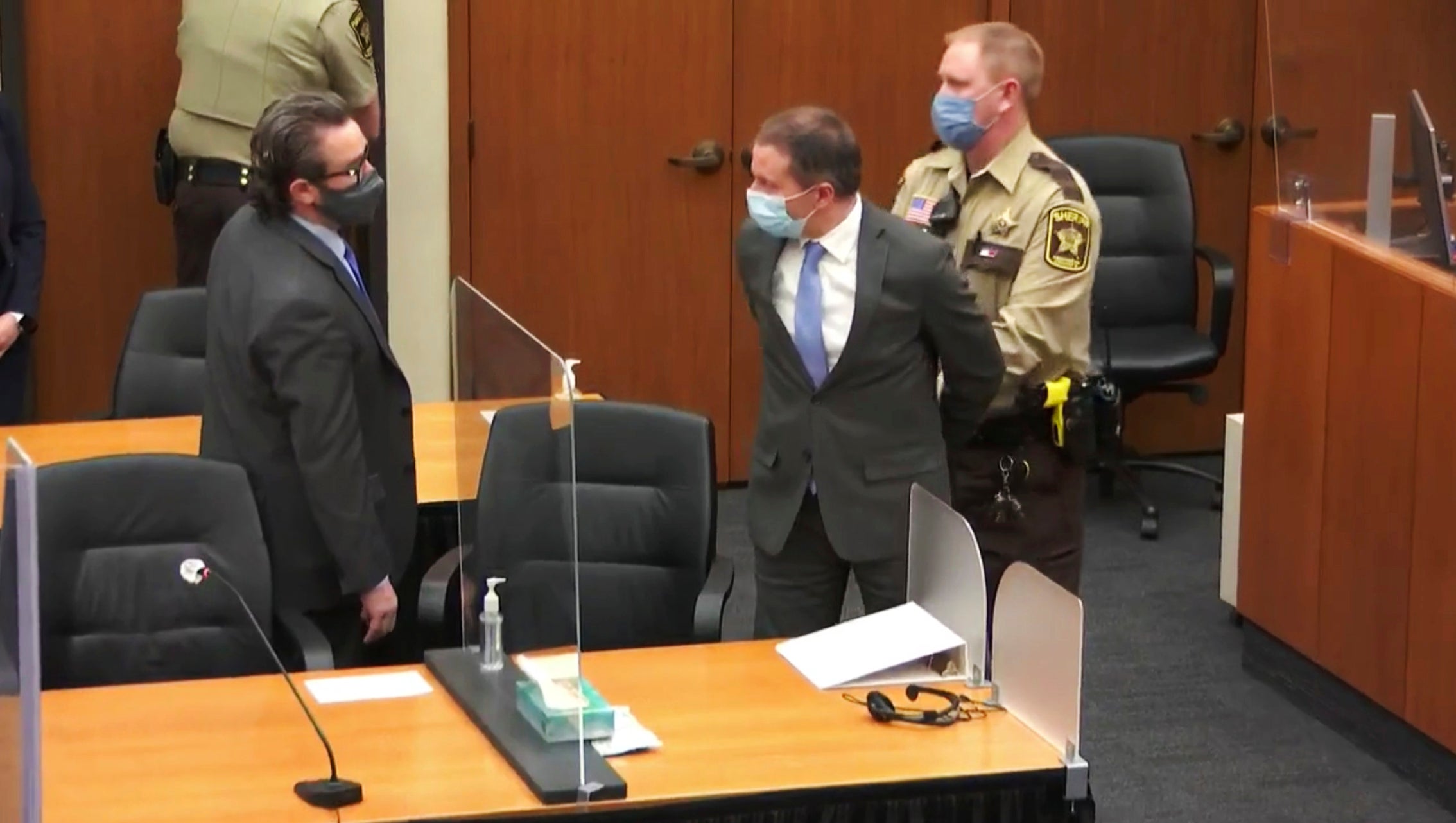
At this point it should be stated that working in law enforcement is tough, that the bad eggs are in a minority, and that most of us want to see criminals brought to justice. But that can be done without resorting to the sort of tactics we see portrayed on our television and cinema screens as normal, and justifiable, even when they are not.
The problem of a pop culture that relays the message that it’s not just ok, but that it’s in the public interest, for police officers to bend the rules, and even break them if that’s what it takes, is that it might very well feed into a marked reluctance to bring bad cops to book.

There is a reason why America was on tenterhooks after the Floyd trial. Prosecutors have proved chary of taking on even the most egregious cases of police misconduct in the past, and juries have shown a reluctance to convict even when they have.
The case against Chauvin was formidably strong, his defence weak. But it would have taken only one juror to listen to its claims that his actions were justified to lead to a mistrial and there were genuine fears that this might be the outcome, which could have proved explosive.
Efforts to reform policing since then have proved spotty. Might that change in the wake some judicious genre reform? Cops who do things by the book can make for TV that’s equally as good as those that don’t. The BBC’s Line of Duty would be one recent example.
It’s also possible to depict investigators as unconventional and annoying to their superiors – traits beloved by crime writers – while still being sticklers for the rules.
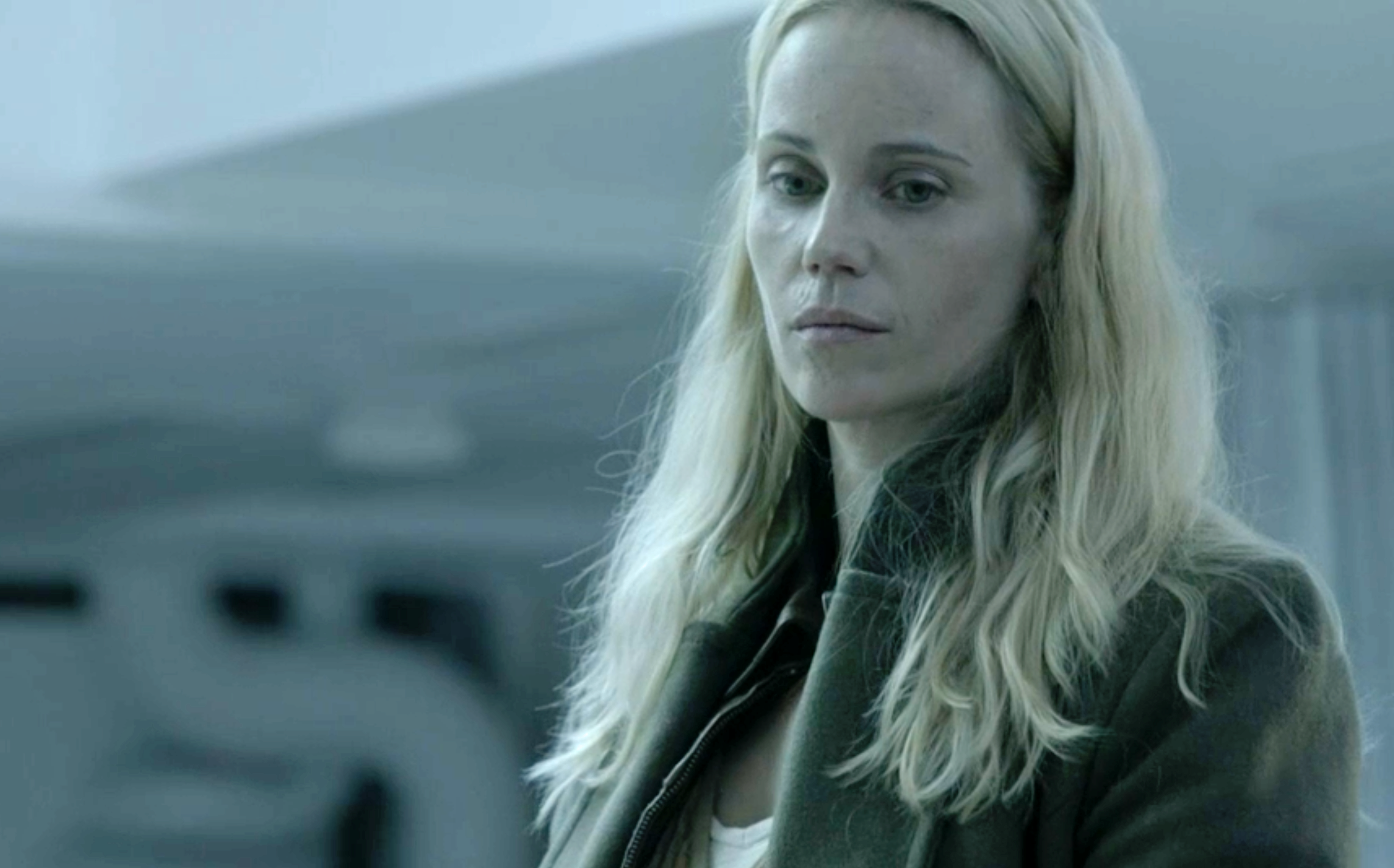
The Bridge, in which Swedish detective Saga Noren ultimately shopped her apparently easy going Danish partner for murdering the killer of his son, sacrificing an unlikely, and for her rare, friendship in the process, is an example of that. Pairing conventional cops with the genre’s favoured rough and ready outsiders can prove quite entertaining too, as Ian Rankin has proved by matching his whisky soaked John Rebus with the straight-laced Malcolm Fox from The Complaints.
Connolly, meanwhile, presents a more jaundiced view of the LAPD in his Lincoln Lawyer series featuring Harry Bosch’s half brother; the defence attorney Mickey Haller. Bosch fans will have chuckled when their hero ended up as the latter’s investigator. The Lincoln Lawyer, having already produced a serviceable movie starring Matthew McConaughey, is coming to Netflix soon. There’s no word on whether Bosch will turn up as he does in the books, assuming it gets an extended run, but the producers could do worse than to give Welliver’s agent a call.
Join our commenting forum
Join thought-provoking conversations, follow other Independent readers and see their replies
Comments